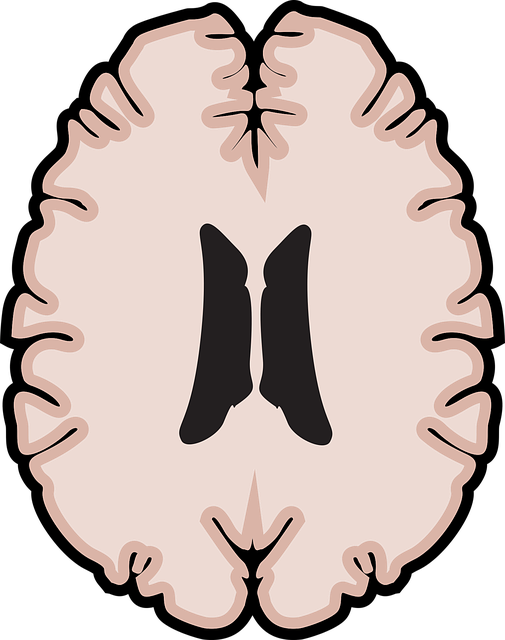Arvada Trauma Therapy prioritizes understanding local needs through community engagement, surveys, and stakeholder collaboration. This data-driven approach identifies unique challenges like domestic violence or grief across diverse demographics. Strategic partnerships with schools, centers, and non-profits enable targeted interventions, workshops (e.g., Inner Strength Development), and accessible services that foster well-being and prevent burnout. Continuous evaluation, including feedback from clients and mental wellness tracking via platforms like the Mental Wellness Podcast Series, ensures Arvada Trauma Therapy remains effective and responsive to the evolving needs of its community.
Arvada Trauma Therapy is transforming lives through targeted community outreach programs. This article delves into the crucial steps of understanding local needs, identifying at-risk populations, and building strong partnerships with organizations and stakeholders. By implementing evidence-based strategies, we explore how to effectively deliver trauma therapy services while evaluating success for sustainable impact in Arvada communities. Discover key practices for expanding access to vital mental health care.
- Understanding Community Needs: Identifying Targets for Arvada Trauma Therapy Programs
- Building Effective Partnerships: Collaborating with Local Organizations and Stakeholders
- Implementing and Evaluating Success: Strategies for Sustainable Outreach in Trauma Therapy
Understanding Community Needs: Identifying Targets for Arvada Trauma Therapy Programs

Understanding Community Needs is a vital step in implementing effective Arvada Trauma Therapy programs. By engaging with community members and local organizations, therapists can identify specific trauma-related challenges unique to Arvada’s population. This process involves gathering insights from focus groups, surveys, and one-on-one interviews to pinpoint target demographics and underlying issues. For instance, certain neighborhoods might face higher rates of domestic violence or community-wide grief resulting from recent natural disasters.
A strategic approach should consider the diverse needs of different age groups, cultural backgrounds, and socioeconomic statuses. Incorporating feedback from local healthcare providers and social workers can offer valuable perspectives on prevalent trauma types and existing support systems. This tailored understanding enables the design of targeted interventions, ensuring that Arvada Trauma Therapy programs address pressing community concerns, complement existing services, and contribute to overall well-being, including effective Burnout Prevention Strategies for Healthcare Providers and the development of Public Awareness Campaigns and Self-Care Routine initiatives for better mental health.
Building Effective Partnerships: Collaborating with Local Organizations and Stakeholders

Building effective partnerships is a cornerstone for successful community outreach programs. When implementing initiatives like those offered by Arvada Trauma Therapy, collaborating with local organizations and stakeholders is key to maximizing impact. By joining forces with schools, community centers, and other non-profits, the program can leverage existing networks, resources, and expertise. This collaborative approach allows for a more holistic understanding of the community’s needs, ensuring that initiatives like Inner Strength Development and Emotional Intelligence workshops resonate deeply with participants.
Engaging stakeholders from diverse backgrounds fosters an environment of trust and cultural sensitivity, which is crucial when addressing sensitive topics such as trauma and stress management. For instance, partnering with local churches or cultural centers can help tailor Stress Management Workshops to be inclusive and accessible, catering to the unique needs and perspectives within the community. This strategic collaboration not only amplifies the reach of the program but also strengthens the overall fabric of the Arvada community.
Implementing and Evaluating Success: Strategies for Sustainable Outreach in Trauma Therapy

Implementing effective community outreach programs for trauma therapy requires a strategic approach to ensure long-term success and sustainability. At Arvada Trauma Therapy, we understand that building trust and accessibility within diverse communities is essential. One key strategy involves adapting services to meet cultural sensitivity in mental healthcare practice. By incorporating cultural awareness and understanding into our outreach methods, we can better connect with individuals from various backgrounds, ensuring empathy building strategies are tailored to their unique needs.
Evaluation plays a pivotal role in measuring the impact of these programs. Regularly assessing client feedback, program participation rates, and changes in mental wellness over time provides valuable insights. The Mental Wellness Podcast Series Production can serve as a powerful tool for evaluating community engagement by offering platforms for sharing success stories and experiences. This two-pronged approach—strategic implementation and rigorous evaluation—enables us to refine our outreach methods continuously, fostering sustainable growth and positive outcomes in trauma therapy services within the Arvada community and beyond.
Community outreach programs play a pivotal role in expanding access to essential services like Arvada Trauma Therapy. By understanding local needs, forging strong partnerships, and implementing sustainable evaluation strategies, we can ensure these programs resonate deeply with those they serve. This holistic approach not only enhances the effectiveness of trauma therapy but also fosters a more resilient and connected community.














